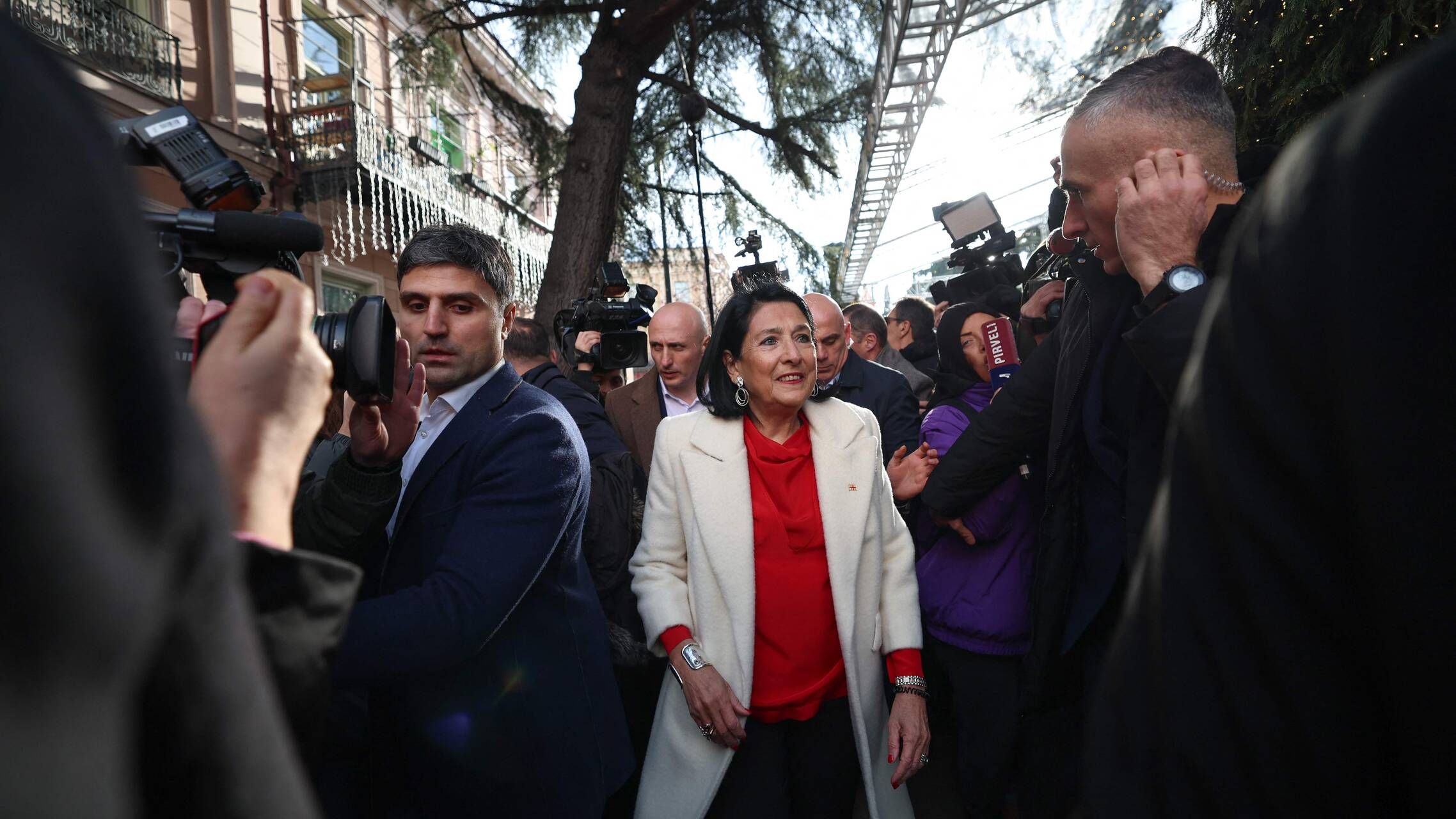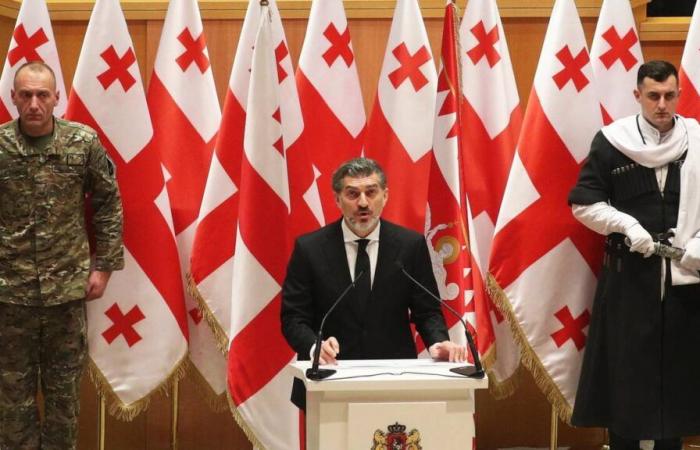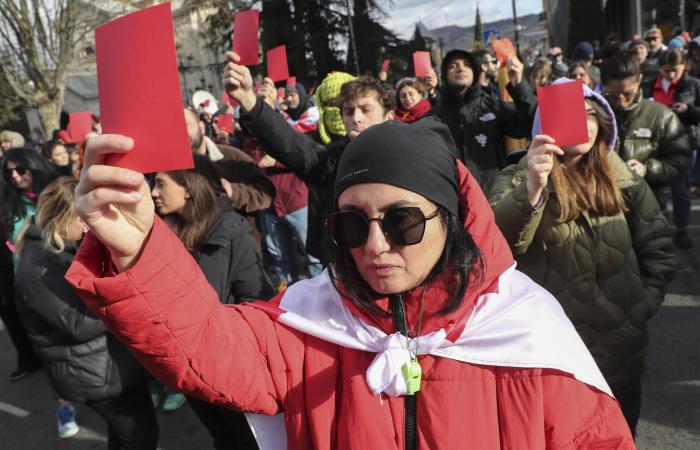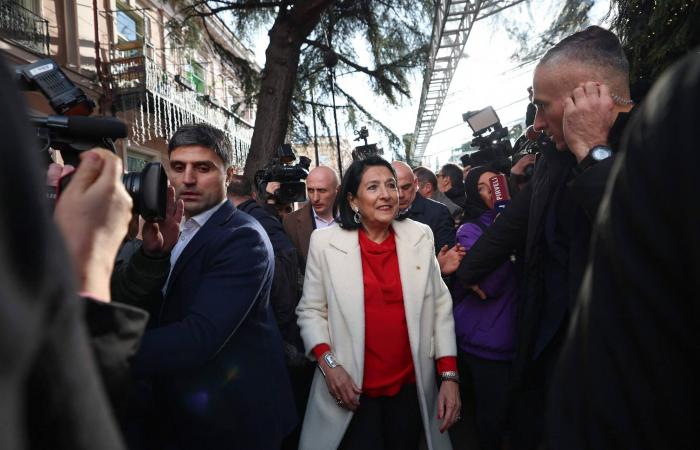A few minutes earlier, after leaving suspense hanging over her intentions, Salomé Zourabichvili announced to her supporters that she was leaving the presidential palace, while calling herself the “only legitimate president” of the country. “I will leave the presidential palace to stand by your side, carrying with me the legitimacy, the flag and your trust,” she said.
Red cards for the former footballer
After the inauguration of the new head of state, a few thousand protesters marched from the presidency to the parliament, the center of the demonstrations which have punctuated life in the Georgian capital for weeks. Some brandished red cards, in reference to the new president’s footballing past. Then, most dispersed peacefully, some promising to demonstrate again in the evening and a few dozen others remaining where they were.
If some demonstrators regretted the outgoing president’s choice to leave the presidential palace, they also said they were determined to continue their struggle. “We will continue to participate in the protests until there is real change,” insisted Guiorgui Mamatelachvili, a 34-year-old computer engineer.
Our portrait: Mikhail Kavelashvili, from Swiss grounds to the presidency of Georgia
A crisis for more than two months
Georgia, a country in the Caucasus and the former USSR, has been in turmoil since the legislative elections of October 26, won by the Georgian Dream party, in power since 2012. The pro-Western opposition has denounced a rigged election and asked for a new vote, just like the demonstrators and Salomé Zourabichvili.
The situation was exacerbated on November 28 when Prime Minister Irakli Kobakhidze announced the postponement of EU integration efforts until 2028, triggering daily pro-European protests that have continued since.

With the departure of Salomé Zourabichvili, the demonstrators lose their main support within the institutions. Although limited by restricted prerogatives, it gave all its support to the streets and used its influence, particularly internationally, to increase pressure on the Georgian Dream party and try to obtain the organization of new legislative elections, which the government continues to refuse.
400 people arrested
The ruling party accuses the opposition of wanting to provoke a revolution, according to it, financed from abroad.
During the first ten days of protests in Tbilisi in late November and early December, police dispersed the crowds with water cannons and tear gas. Demonstrators responded by setting off fireworks and throwing projectiles at the police.
If demonstrations remain daily, clashes are much rarer. In total, more than 400 people were arrested, including opposition leaders, and dozens of police officers injured. The Georgian human rights ombudsman, Levan Iosseliani, reported “torture” of detainees by the police.
On December 2, 2024: On the fifth day of demonstrations in Georgia, the authorities refuse to negotiate
Anglo-Saxon sanctions
Last week, the United States and the United Kingdom imposed sanctions on several senior Georgian officials. Washington announced that they were targeting in particular the billionaire Bidzina Ivanishvili, who de facto controls the Georgian Dream party.
The party is accused by its detractors of abandoning a liberal and pro-European program in favor of an authoritarian drift and of wanting to turn the country towards Moscow. The party thus passed controversial laws similar to those existing in Russia, targeting civil society, independent media and LGBT + rights.








